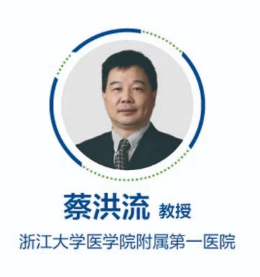Dr. Hongliu Cai
ICU Director, Chief Intensivist
Specialty Focus: Expertise in management of critically ill patients and Mechanical ventilation, focus on lung-protective ventilation strategies and ARDS management

The Mechanical Ventilation Fellowship Program in the ICU provides an immersive experience for medical trainees to enhance their knowledge and competency in managing critically ill ventilated patients. This workshop covers both theoretical foundations and hands-on clinical practice in invasive and non-invasive mechanical ventilation strategies. Participants will learn under the guidance of senior intensivists, respiratory therapists, and ICU specialists, acquiring essential skills to optimize ventilator management and improve patient outcomes.
1. Expert-led Training: Direct supervision and mentorship by renowned ICU intensivists and respiratory therapists.
2. Comprehensive Skill Development: Mastery of ventilator modes, troubleshooting, and advanced ventilation techniques.
3. Multidisciplinary Approach: Collaboration with nurses, RTs, and specialists to improve teamwork in ventilation care.
4. Hands-on Experience: Clinical rounds, simulation-based training, and patient-centered case discussions.
5. Focus on Evidence-based Practices: Integration of current research into lung-protective strategies, weaning protocols, and VAP prevention.
Upon completion of the program, participants will have attained the following competencies:
• A comprehensive understanding of the principles governing invasive and non-invasive ventilation techniques.
• Proficiency in adjusting ventilator settings and conducting arterial blood gas (ABG) analysis.
• The ability to apply lung-protective strategies when treating patients with acute respiratory distress syndrome (ARDS).
• Enhanced skills in troubleshooting ventilator issues and managing conditions of hypoxemia.
• The capability to incorporate clinical evidence into the optimization of ventilation protocols and the improvement of patient outcomes.
The program provides a full-time, 2-week to 6-month with structured clinical and simulation-based training sessions.
In special circumstances, arrangements can be made for other lengths of training depending on your needs and interests.
• Fellows: Completed critical care, anesthesia, or emergency residency programs.
• Residents: Ongoing residency training in ICU-related specialties.
• Students: Final-year medical students with basic knowledge of respiratory physiology.
Focus Areas
1. Mechanical ventilation in ARDS and sepsis.
2. Non-invasive ventilation (NIV) in respiratory failure.
3. Ventilator-associated pneumonia (VAP) prevention.
4. Weaning and extubation protocols.
5. Prone positioning and rescue therapies.
Skills
• Ventilator setup and parameter adjustment.
• ABG interpretation and ventilation adjustments.
• Respiratory mechanics analysis and waveform interpretation.
• Recognition and management of ventilator complications (e.g. barotrauma, asynchrony).
• Simulation-based ventilator troubleshooting.
• Advanced skills: Prone ventilation and ECMO basics (theoretical overview).
Daily Activities
Monday Week 1: Introduction to mechanical ventilation; overview of ventilator types and modes.
Weekly: MDT case-based discussions, patient care rounds, ventilator setup simulation.
Tuesday Weekly: ABG interpretation, hands-on ventilator settings adjustment.
Biweekly: 1-on-1 mentorship with respiratory therapists and intensivists.
Wednesday Weekly: Clinical rounds focusing on weaning strategies and patient extubation readiness.
Biweekly: Advanced topics – prone ventilation and rescue therapies.
Thursday Weekly: Case-based discussions on ARDS management and VAP prevention protocols.
Biweekly: Hands-on simulation on waveform analysis and troubleshooting.
Friday Weekly: Journal club on evidence-based ventilation practices.
Last Week: Wrap-up, participant case presentations, feedback session.
1. Assessments:
• Written test on ventilation theory.
• Practical skills assessment (e.g. ventilator setup, ABG adjustments).
• Case presentations evaluated by faculty.
2. Feedback: Participants will submit post-program surveys and receive personalized verbal evaluations from mentors.

ICU Director, Chief Intensivist
Specialty Focus: Expertise in management of critically ill patients and Mechanical ventilation, focus on lung-protective ventilation strategies and ARDS management

Senior Respiratory Therapist
Specialty Focus: Ventilator troubleshooting, waveform analysis, non-invasive ventilation, weaning protocols
The program is free of charge.